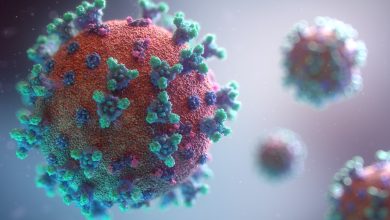What can I expect my quality of life to be after liver transplantation?
Liver transplantation

Liver transplantation has the highest success rate in India. Recipients can live a normal life over 30 years after the transplant from the deceased or a living donor. The three-year liver transplant success rate is about 92%, the five-year survival rate at about 73%, and a ten-year survival rate of about 60%. With the help of immunosuppressants medicines, patients can lead a high-quality life.
The number one reason for graft failure is a failure to comply with immunosuppression medical regimen. Close follow-up with your transplant team can ensure a good outcome. For a prolonged life after the transplant, it is essential to pay heed to medical schedules, change in lifestyle, and dietary and infection avoidance techniques.
Liver transplantation is the best possible treatment for acute and chronic liver failure with excellent outcomes.
Mortality Rate Liver Transplant:
Generally, about 75% of people undergoing liver transplants will live for at least five years meaning out of 100 patients who receive a liver, about 75 will live for five years and 30 will die within five years.
What can I expect my quality of life to be after liver transplantation?
Before leaving the hospital, your transplant team will provide all the guidance and instructions you need to take for the “new” you.
The first three months after the transplant are the toughest days. The body is adjusting to the “new” liver with help of immunosuppression medications. By the time a patient is discharged from the hospital, they need to take care of themselves with some minor restrictions. Most patients can return to normalcy after 3-6 months of the surgery. Socializing, playing sports, exercise, traveling for business and pleasure are all possible after the transplant once you recover. After recovery, the patient can lead a normal life just like before.
You will not be able to further consume alcohol as it is toxic for the liver and can interfere with the metabolization of certain medications. You can resume sexual activity after getting discharged from the hospital.
Many household chemicals such as paints, gasoline, paint remover, drain cleaners, insecticide, and pesticide- all can be toxic. Even the fumes of these substances can be harmful to a liver transplant patient. Hence, patients must avoid exposure to such fumes and skin contact.
After the transplant, the patient is advised to drink treated water. If patients drinking water comes from an unquestionable source then the water must be boiled and drunk.
Dr. Vivek Vij is considered the best liver transplant surgeon in India with 95% success results which are at par with the world’s best centers.
Will I need to take medications after my liver transplant?
Patients need to take lifelong medicines after the liver transplant to help the new liver function properly. Some take medicines to prevent rejection while some take to fight infection and while some take to treat the side effects of immunosuppressants (to suppress the body’s natural immune responses).
Patients after getting discharged from the hospital are required to consume 7-10 medicines in daily life. As the patient heals and recovers, the number of doses reduces with time. Within 6 months’ time, the medicines come down to 1-2 doses. However, in all cases, patients have to take medicine for the rest of their lives to prevent rejection of the “new” liver. It is important to take these medicines at a proper scheduled time otherwise it may lead to graft failure.
Will my disease come back after the transplant?
Yes, certain liver diseases in some cases may come back in patients. This is the most common threat after liver transplantation. For example, hepatitis C may come back again. In case, there is a risk for the liver disease to come back, the transplant team will keep a close monitor to prevent a recurrence.
Although there is pain after the surgery, it isn’t as severe as abdominal surgeries. The Most common discomfort is back pain. The transplant team will prescribe appropriate medicine for back pain. Most patients are hospitalized for 7-10 days after a liver transplant. One can resume work after 3 to 6 months of healing and recovery period.
Mortality rate liver transplant has 89% chance of living after a year. The five-year mortality rate is 75%, sometimes the transplanted liver may fail or the original disease may return.
Side effects of medications after the transplant:
Many medications have side effects which include the following:
- Change in mood
- Elevated blood pressure
- Loss of hair/ hair growth
- Bone and muscle weakness
- Elevated blood sugar
- Vomiting
- Nausea
- Headache
- Diarrhea
- Kidney dysfunction
- Weight gain
- Diabetes
Most patients will experience side effects with medications but it will reduce with the reduction in doses.
Certain complications may also arise after the liver transplant:
- Bleeding
- Rejection of the new liver
- Infection
- Bile duct leaks
- Hepatic Artery Thrombosis
- Hepatitis Recurrence
Dr. Mohamed Rela is considered the best liver transplant surgeon in the world. He is an Indian surgeon known for his expertise in liver transplantation and hepatopancreatobiliary (HPB) surgery. The chances of liver transplant success will depend on your particular health condition. As per the statistics, 90% will survive one-year post-surgery.





